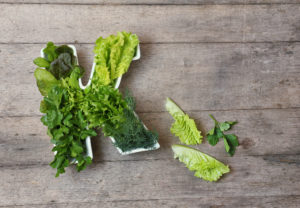 New research has found that vitamin K, a fat-soluble nutrient found in leafy greens and some vegetable oils, may promote longevity by encouraging vein health.
New research has found that vitamin K, a fat-soluble nutrient found in leafy greens and some vegetable oils, may promote longevity by encouraging vein health.
Vitamin K doesn’t get too much shine. That’s largely because you’re always being reminded to eat your leafy greens. It’s abundant in greens like spinach, kale, and lettuce, so if you’re eating those, you’re getting vitamin K.
Advertisement
Those foods are regularly touted as some of the healthiest you can eat and are associated with a host of health benefits including better heart health, lower cholesterol, and reduced blood pressure. Leafy greens and other vitamin K-rich foods may be integral to longevity.
The anti-aging effects of vitamin K were recently observed in a new study. Researchers from the Jean Mayer Human Nutrition Research Center and Tufts Medical Center took a look to see how blood levels of vitamin K influenced heart disease and mortality risk.
Researchers followed 4,000 participants between the ages of 54 and 76 for 13 years. They observed 13 categories to determine heart disease and death risk. Fasting vitamin K levels were measured.
They found that although there was little correspondence between vitamin K levels and heart disease, those with the lowest levels had a 19% higher risk of death. The reasoning, researchers believe, is that vitamin K helps prevent calcium from building up on artery walls.
When too much calcium builds up along arterial walls, blood vessels become less functional. They lose elasticity and blood travels much less efficiently, which can lead to problems like blood clots, increased blood pressure, poor circulation, and more.
Advertisement
An older study by the same researchers found that low levels of vitamin K were lined with mobility problems and disability in older adults.
Leafy green vegetables are essential in building a heart-healthy anti-aging lifestyle. They are great sources of vitamin K but are also high in fiber and several other valuable vitamins, minerals, and antioxidants. Try to eat at least one cup per day.
Some ways to fit more vitamin K into your diet include:
- Adding spinach/kale to omelets
- Using frozen leafy greens in protein/nutrition shakes
- Adding leafy greens to tomato/pasta sauce
- Eating more salad
- Using them as toppings on sandwiches
- Putting leafy greens in soup and stew
- Making kale chips
